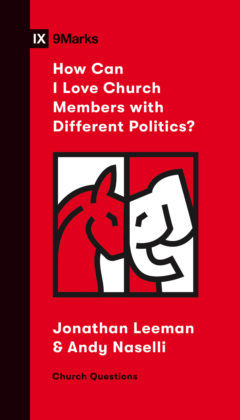 In summer 2021 I prepared a talk for the young adults in my church on resources that have helped me make sense of our pagan culture. I recently updated that for the Spring 2022 issue of CBMW’s journal Eikon:
In summer 2021 I prepared a talk for the young adults in my church on resources that have helped me make sense of our pagan culture. I recently updated that for the Spring 2022 issue of CBMW’s journal Eikon:
Andrew David Naselli. “Ten Resources That Have Helped Me Make Sense of Our Current Culture and How Christians Are Responding to It.” Eikon: A Journal for Biblical Anthropology 4.1 (2022): 116–41.
These are the ten resources I commend and annotate (the first five are by non-Christians):
1. Greg Lukianoff and Jonathan Haidt, The Coddling of the American Mind: How Good Intentions and Bad Ideas Are Setting up a Generation for Failure (New York: Penguin, 2018).
 [Read more…] about Ten Resources That Have Helped Me Make Sense of Our Current Culture and How Christians Are Responding to It
[Read more…] about Ten Resources That Have Helped Me Make Sense of Our Current Culture and How Christians Are Responding to It


